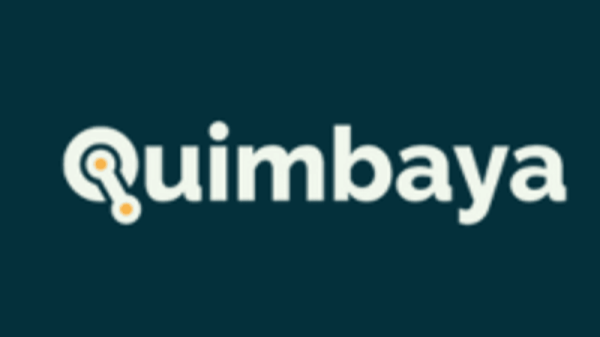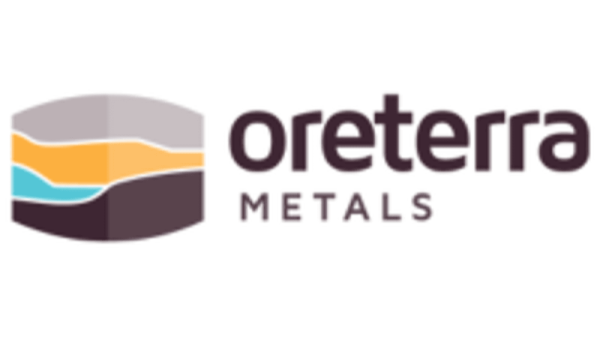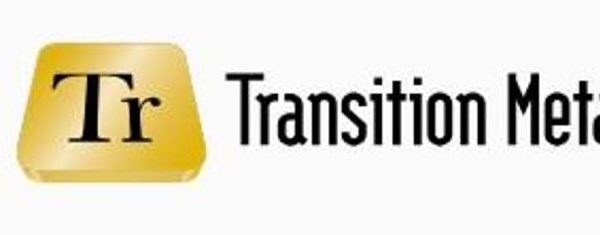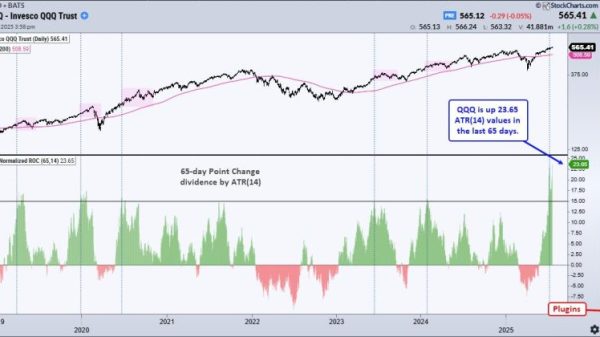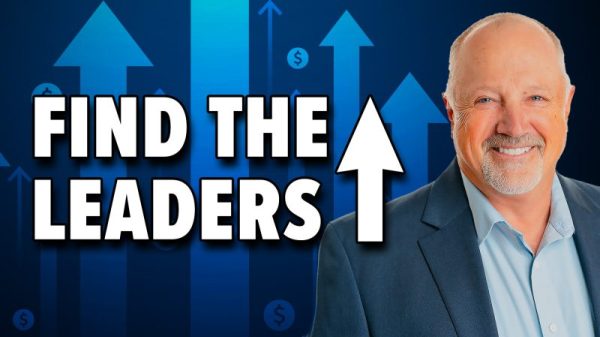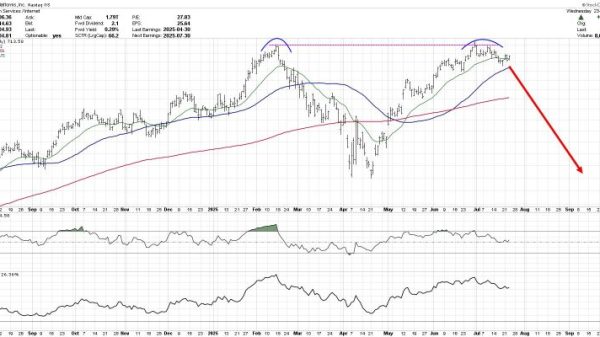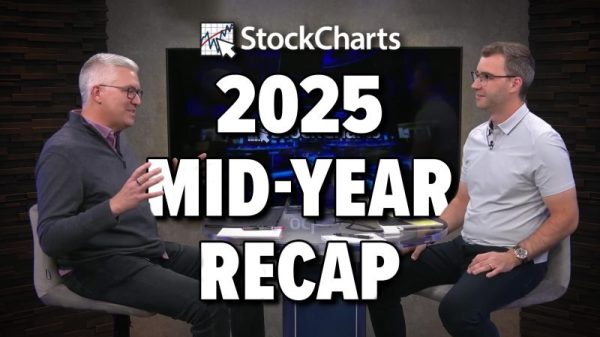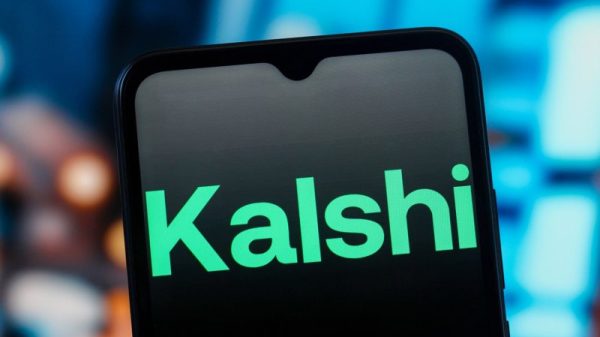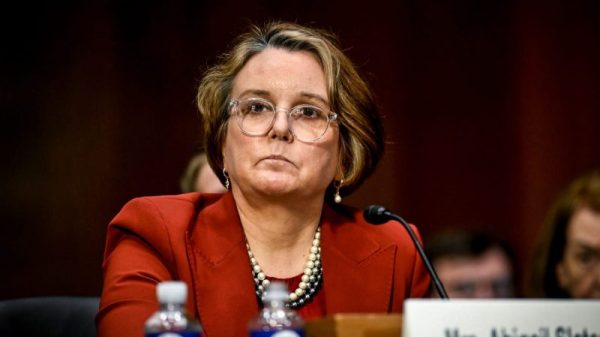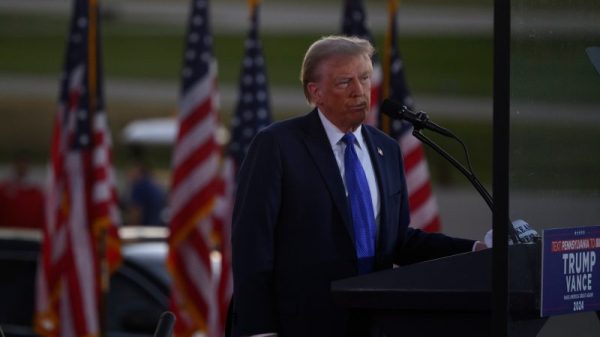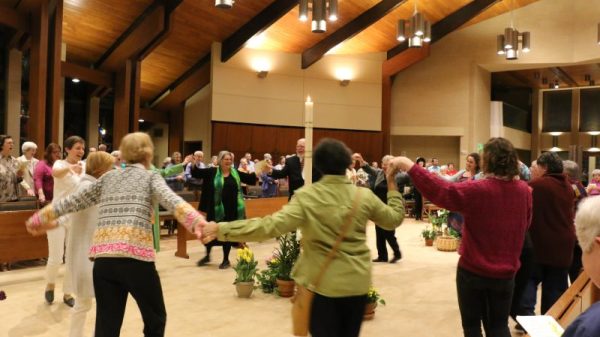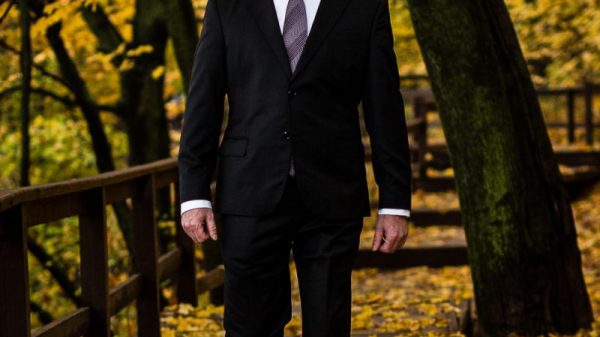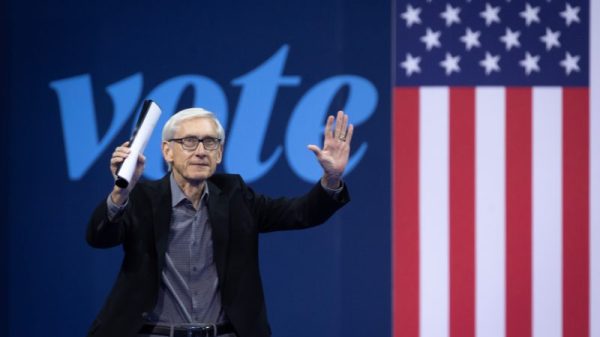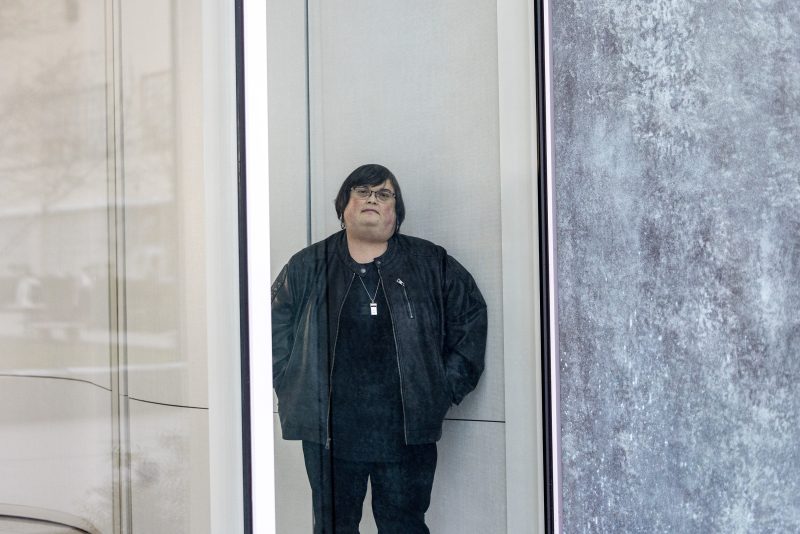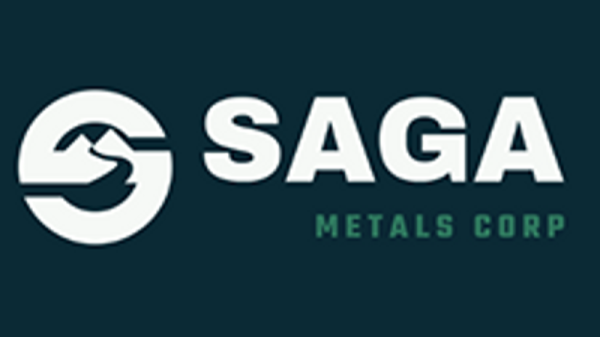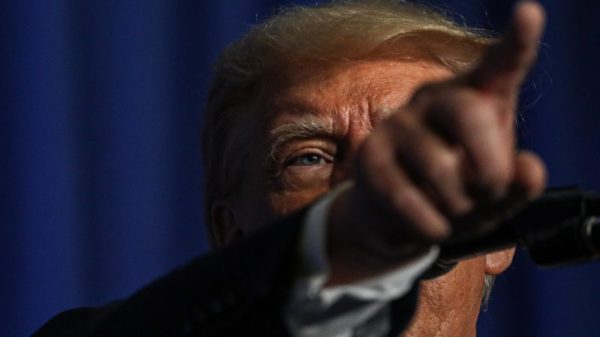A prominent disinformation scholar has accused Harvard University of dismissing her to curry favor with Facebook and its current and former executives in violation of her right to free speech.
Joan Donovan claimed in a filing with the Education Department and the Massachusetts attorney general that her superiors soured on her as Harvard was getting a record $500 million pledge from Meta founder Mark Zuckerberg’s charitable arm.
As research director of Harvard Kennedy School projects delving into mis- and disinformation on social media platforms, Donovan had raised millions in grants, testified before Congress and been a frequent commentator on television, often faulting internet companies for profiting from the spread of divisive falsehoods.
Last year, the school’s dean told her that he was winding down her main project and that she should stop fundraising for it. This year, the school eliminated her position. The surprise dismissal alarmed fellow researchers elsewhere, who saw Donovan as a pioneer in an increasingly critical area of great sensitivity to the powerful and well-connected tech giants.
Donovan has remained silent about what happened until now, filing a 248-page legal statement obtained by The Washington Post that traces her problems to her acquisition of a trove of explosive documents known as the Facebook Papers and championing their importance before an audience of Harvard donors that included Facebook’s former top communications executive.
Harvard disputes Donovan’s core claims, telling The Post that she was a staff employee and that it had not been able to find a faculty sponsor to oversee her work, as university policy requires. It also denies that she was fired, saying she “was offered the chance to continue as a part-time adjunct lecturer, and she chose not to do so.”
Donovan obtained the Facebook documents when they and the former Facebook employee who leaked them, Frances Haugen, were the subject of extensive news coverage in October 2021, with The Post writing that the documents showed Facebook “privately and meticulously tracked real-world harms exacerbated by its platforms, ignored warnings from its employees about the risks of their design decisions and exposed vulnerable communities around the world to a cocktail of dangerous content.”
As the main attraction at a Zoom meeting for top Kennedy School donors on Oct. 29 that year, Donovan said the papers showed that Meta knew the harms it was causing. Former top Facebook communications executive Elliot Schrage asked repeated questions during the meeting and said she badly misunderstood the papers, Donovan wrote in a sworn declaration included in the filing.
Ten days after the donors meeting, Kennedy School dean Doug Elmendorf, a former director of the Congressional Budget Office, emailed Donovan with pointed questions about her research goals and methods, launching an increase in oversight that restricted her activities and led to her dismissal before the end of her contract, according to the declaration. Donovan wrote that the Chan Zuckerberg Initiative’s $500 million gift for a new artificial intelligence institute at the university, announced Dec. 7 that year, had been in the works before the donor meeting.
Leaders at the Kennedy School “were inappropriately influenced by Meta/Facebook,” Donovan claims in her declaration. “A significant conflict of interest arising from funding and personal relationships has created a pervasive culture at HKS of operating in the best interest of Facebook/Meta at the expense of academic freedom and Harvard’s own stated mission.”
The filing raises questions about the potential conflict of interest created by Big Tech’s influence at research institutions that are called upon for their expertise on the industry.
“The document’s allegations of unfair treatment and donor interference are false. The narrative is full of inaccuracies and baseless insinuations, particularly the suggestion that Harvard Kennedy School allowed Facebook to dictate its approach to research,” Kennedy School spokesperson Sofiya Cabalquinto said by email. “By policy and in practice, donors have no influence over this or other work.”
Cabalquinto’s email added: “By long-standing policy to uphold academic standards, all research projects at Harvard Kennedy School need to be led by faculty members. Joan Donovan was hired as a staff member (not a faculty member) to manage a media manipulation project. When the original faculty leader of the project left Harvard, the School tried for some time to identify another faculty member who had time and interest to lead the project. After that effort did not succeed, the project was given more than a year to wind down. Joan Donovan was not fired, and most members of the research team chose to remain at the School in new roles.”
Elmendorf declined to comment.
At one point, Elmendorf told Donovan that she did not have academic freedom because she was staff rather than faculty, she recounts. Officials confirmed that position to The Post.
But Harvard Law School professor Lawrence Lessig said that stance should be limited to traditional staff work, not research papers, other publications and teaching.
“When you’re doing what looks like academic work as one of the most prominent people in an academic field, the university ought to award that person the protections of academic freedom,” said Lessig, an expert on corruption who made inquiries to Harvard’s administration on Donovan’s behalf. “When she was presenting herself to the world, there was no asterisk at the bottom of her name saying, ‘As long as what she says is consistent with the interests of Harvard University.’”
Donovan was recently hired for a tenure-track professorship at Boston University.
The Donovan case comes at a time when researchers who focus on social media platforms find themselves under increasing attack. Trump adviser Stephen Miller’s legal foundation has sued academic and independent researchers, claiming that they conspired with government agencies to suppress speech, and Republican-led congressional committees have subpoenaed their records, adding to the pressure.
In addition, Big Tech companies themselves have sponsored research, made grants to some colleges and universities, and doled out data to professors who agree to specific avenues of inquiry.
The filing asks the federal Education Department’s civil rights division to investigate whether Harvard violated Donovan’s right to free speech and academic freedom. It asks Massachusetts’s charity regulators to examine whether the university deceived donors or misappropriated their funds by retaining millions that Donovan had raised for her research.
A copy sent to Harvard’s new president, Claudine Gay, asks her to determine whether the Kennedy School had breached the university’s own policies.
“All of the efforts taken to undermine Dr. Donovan came at great costs — to the donors who contributed millions of dollars to her work, and to the public more broadly who every day, all day long, are exposed to disinformation and misinformation,” Whistleblower Aid attorneys Andrew Bakaj and Kyle Gardiner wrote in the filing.
“There are a handful of tried and true means to coerce someone or some entity to do something they would not otherwise do, and influence through financial compensation is at or near the top of the list,” the filing says. “Objectively, $500 million is certainly significant financial influence.”
In addition to Donovan, Whistleblower Aid has represented Haugen, the Facebook whistleblower; former Twitter security chief Peiter Zatko; and anonymous whistleblowers from the intelligence community.
In the documents, Donovan contends that Meta’s influence at Harvard goes beyond money and includes deep personal connections. Schrage, for one, earned degrees from Harvard College, the Kennedy School and Harvard’s law school.
Zuckerberg and Facebook’s former longtime chief operating officer, Sheryl Sandberg, were Harvard undergraduates, as was Zuckerberg’s wife, Priscilla Chan.
Elmendorf served as Sandberg’s adviser for a club she started in college. They remained close, and Elmendorf attended Sandberg’s wedding in August 2022. Four days later, he told Donovan he was winding down her research team, she says in the complaint.
Kennedy School officials said Elmendorf and Sandberg never discussed Donovan. Schrage and Sandberg declined to comment.
Meta also declined to comment, while the Chan Zuckerberg Initiative said it contributed money because it cared about the science. “CZI had no involvement in Dr. Donovan’s departure from Harvard,” spokesperson Jeff MacGregor said.
Donovan says in her complaint that Elmendorf emailed her after the October donors’ meeting and asked to discuss her Facebook work and “focus on a few key issues drawn from the questions raised by the Dean’s Council and my own limited reading of current events.”
He wrote that he wanted to hear from her about “How you define the problem of misinformation for both analysis and possible responses (algorithm-adjusting or policymaking) when there is no independent arbiter of truth (in this country or others) and constitutional protections of speech (in some countries)?”
Donovan said in the filing that Elmendorf’s use of the phrase “arbiters of truth” alarmed her because Facebook uses the same words to explain its reluctance to take actions against false content.
She explained to Elmendorf that rather than making moral judgments about politics or proclaiming that a vaccine is good or bad, she looked for provable manipulation of platforms, as with fake accounts.
“We do not generally speak about what is good or bad for a society, but rather what is true or false about a specific public event,” she emailed him.
Donovan then alerted colleagues with whom she was starting to work on the Facebook Archive of leaked documents that she was drawing heat. Both suggested that they take the name of Donovan’s Technology and Social Change Research Project off the archive project’s website.
“Let’s remove the explicit listing of TASC, minimally, or of all three groups, when the website updates later today,” Kennedy School professor Latanya Sweeney wrote in an email included in Donovan’s filing. “No reason to put a target on the project that allows FB to claim bias before we even do anything.”
Donovan’s project remained listed on the page until this year, according to copies preserved by the internet archive.
Sweeney said her role was twisted by the Donovan filing. “The number and nature of inaccuracies and falsehoods in the document are so abundant and self-serving as to be horribly disappointing,” she told The Post. “Meta exerted no influence over the Facebook Archive or any of our/my work.”
Elmendorf met with Donovan again in August 2022 and told her that her project at the Kennedy School would end in the coming year, the filing says.
Though Donovan’s contract was supposed to keep her on the job through the end of 2024, her superiors took away her ability to start new projects, raise money or organize large events, she alleges. They kept the money she had brought in, including more than $1 million from Craigslist founder Craig Newmark that he wanted specifically to go to her research project, according to documents quoted in the declaration. Newmark declined to comment.
The Kennedy School said no money was misused. The Massachusetts attorney general’s office said it is reviewing the filing. The Education Department did not respond to a request for comment.
This September, Elmendorf said that the current academic year would be his last as dean and that he would continue to teach.
The Facebook Archive finally went public in October. Far down a page devoted to the history of the site, it says that Sweeney’s Public Interest Tech Lab “received an anonymous drop of the internal Facebook documents” and that “Dr. Joan Donovan immediately recognized the valuable insight the documents provided.”
It does not say Donovan obtained the documents and launched the project, as she contends.


